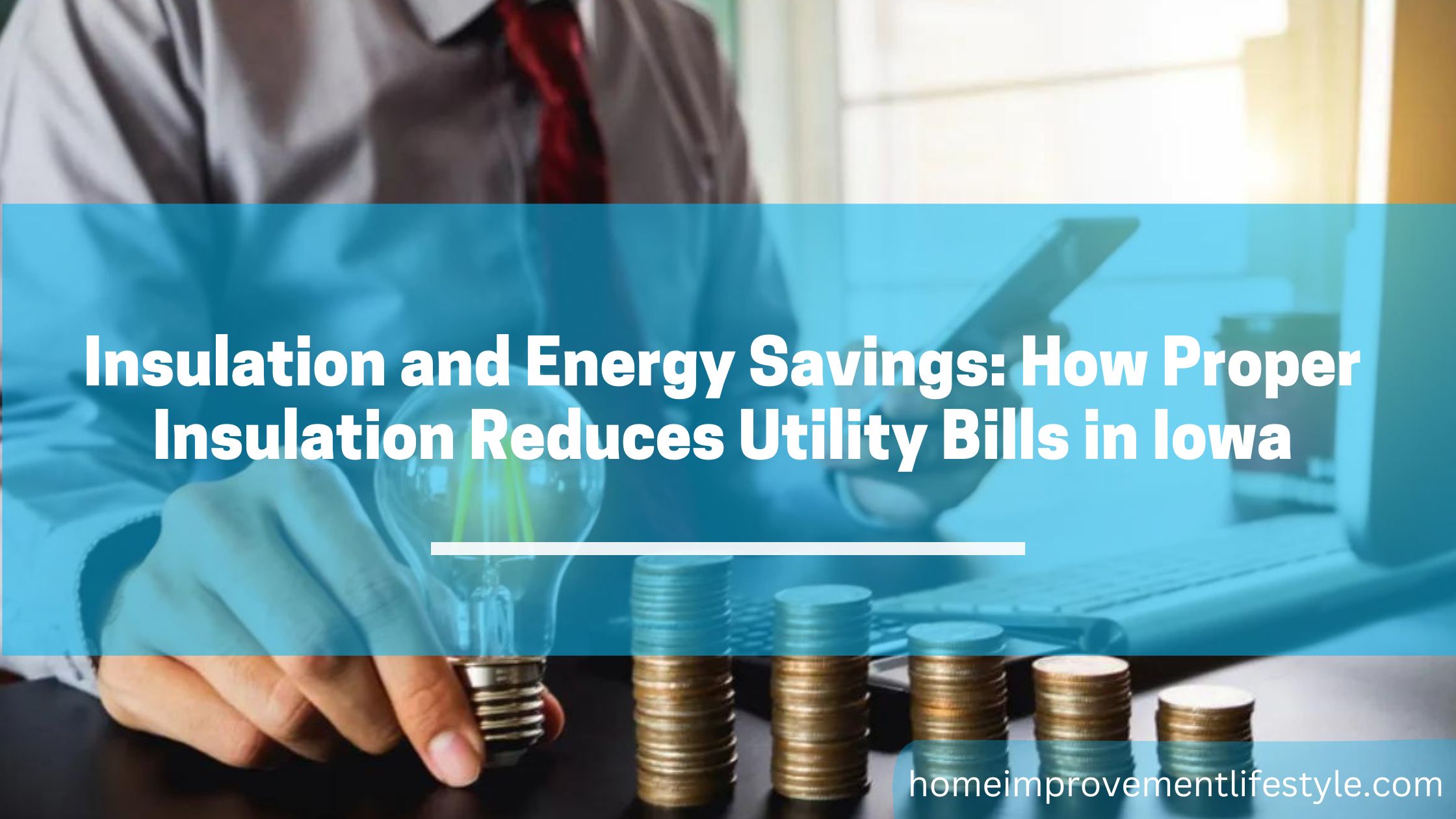Proper insulation is a homeowner’s best friend when it comes to saving energy and reducing utility bills. Having adequate insulation is crucial to maintain a comfortable indoor environment and minimize energy waste. In Iowa, where temperatures vary significantly between summer and winter, proper insulation is essential for energy efficiency.
In this blog post, we will explore the importance of proper insulation and how it can significantly impact your utility bills. By understanding the benefits of insulation and implementing the right strategies, you can create an energy-efficient home and save money in the long run. Let’s dive into how proper insulation reduces utility bills in Iowa.
The Role of Insulation: Keeping the Elements at Bay
Insulation acts as a barrier between the interior and exterior of your home, preventing the transfer of heat and cold. In the winter, insulation helps keep the warmth and cold air inside. Conversely, during hot Iowa summers, insulation helps to keep your home cool by blocking the entry of outdoor heat. By effectively regulating indoor temperatures, insulation reduces the need for constant heating or cooling, resulting in significant energy savings.
Minimizing Heat Loss and Gain: Lower Energy Consumption
One of the primary benefits of proper insulation is its ability to minimize heat loss and gain. In Iowa’s cold winters and hot summers, insulation helps to maintain a consistent indoor temperature, reducing the reliance on heating and cooling systems. When properly insulated, your home retains the desired temperature for longer periods, which translates to lower energy consumption and reduces utility bills.
Sealing Air Leaks: Preventing Energy Waste
Insulation provides thermal resistance and plays a vital role in sealing air leaks. Air leaks around windows, doors, and other openings can result in significant energy loss, forcing your heating and cooling systems to work harder to compensate. Properly insulating these areas can prevent air leaks and minimize energy waste. Sealing air leaks enhances indoor comfort by eliminating drafts and maintaining a more consistent temperature throughout your home.
Energy-Efficient Home Upgrades: Maximizing Insulation Benefits
Consider additional energy-efficient home upgrades with proper insulation to enhance energy savings. These upgrades include installing energy-efficient windows, using weatherstripping to seal gaps, and upgrading to energy-efficient appliances. When combined with proper insulation, these measures create a comprehensive approach to energy efficiency, maximizing your savings and reducing utility bills even further.
Different Types of Insulation: Making the Right Choice
Different types of insulation are suited for different areas of your home, and not all are created equal. Here are some of the most common insulation materials used in Iowa homes:
Fiberglass
One of the most commonly used insulation materials, fiberglass, is available in rolls and batts that are easy to install. This insulation type offers superior protection against heat transfer and creates an effective barrier against drafts.
Cellulose
Cellulose insulation is made from recycled newspaper treated with fire retardants. This material provides excellent thermal resistance and is ideal for attics, walls, and floors.
Spray Foam
Spray foam insulation is applied as a liquid, expanding to form a thick and durable foam that can be used in attics, walls, and other areas. It effectively seals air leaks while providing superior insulation against heat and cold.
Mineral Wool
A type of rock-based fiber insulation, mineral wool is fire-resistant and offers superior soundproofing. This insulation material is most commonly used in walls and ceilings and is available in batts or loose-fill forms.
Making the Right Choice: Working with an Expert
Insulation is a major home improvement that requires careful consideration due to its impact on energy efficiency. To ensure you make the right decision for your home, it’s important to work with an experienced insulation expert like iFOAM Eastern in Iowa, who can help you choose the right material and provide professional installation services.
Maintenance and Inspection: Keeping Your Insulation in Top Condition
In addition to proper installation, regularly inspecting your insulation is crucial to maintaining its efficiency and maximizing energy savings. While insulation is designed to last many years, it is not immune to wear and tear. Over time, minor issues such as holes, gaps, or damaged areas can develop, compromising the insulation’s effectiveness and leading to increased energy consumption.
Regular inspection allows you to identify any potential problems with your insulation and address them promptly. By detecting and fixing issues early on, you can prevent further damage and ensure that your insulation continues to perform optimally. It is recommended to have an expert inspect your insulation annually to assess its condition and provide necessary maintenance or repairs thoroughly.
During the inspection, the expert will examine the insulation for any signs of damage, deterioration, or gaps that may have formed over time. They will also check for proper installation and ensure that all areas are adequately covered. Additionally, they may use specialized tools and equipment to assess the insulation’s thermal performance and identify any areas of concern.
If any issues are found during the inspection, the expert will provide recommendations for repair or replacement. This could involve patching holes or gaps, adding insulation in areas that may be insufficient, or replacing damaged insulation altogether. Addressing these issues can restore the insulation’s efficiency and maintain optimal energy savings.
Common Mistakes In Installing Insulation
Some common mistakes can affect the effectiveness of your insulation and lead to energy waste. Here are some of the most common errors that should be avoided:
- Poor Air Sealing: Not sealing air leaks around windows, doors, and other openings can reduce the efficiency of your insulation.
- Insufficient Ventilation: To prevent moisture buildup that can lead to mold and mildew growth, it’s important to provide adequate ventilation.
- Improper Insulation Installation: Improper insulation installation can reduce its effectiveness and lead to energy waste.
When To Replace Insulation
Over time, insulation may lose its effectiveness due to settling or moisture buildup. To ensure your insulation is still working efficiently, it’s important to inspect it regularly and have a professional replace the materials if necessary. It’s how proper insulation reduces utility bills for Iowa homes. Working with an experienced insulation expert ensures your insulation is properly installed.
Conclusion
Proper insulation is vital to an energy-efficient home, especially in a climate like Iowa’s. Investing in quality insulation and addressing air leaks can significantly reduce heat loss and gain, minimize energy consumption, and ultimately lower your utility bills. Remember to consider comprehensive energy-efficient upgrades to complement your insulation efforts and maximize savings. Consult with insulation professionals to assess your home’s insulation needs and ensure proper installation. By prioritizing insulation and energy efficiency, you can create a comfortable, cost-effective living space while minimizing environmental impact. Take action today to reap the benefits of proper insulation and enjoy long-term energy savings for your home.


